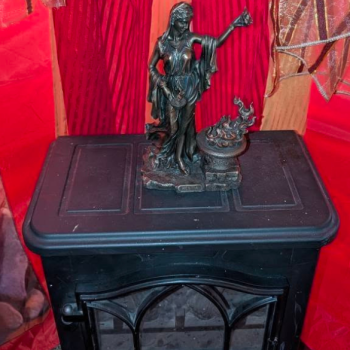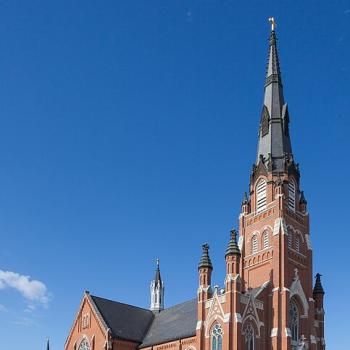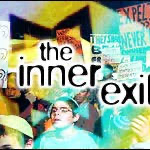We crave the transcendent and the absolute; thus there must be a God in heaven. Faith itself, the "choice" to believe, becomes the ultimate act of self-expression: "What we choose to embrace, to be responsive to, is the purest reflection of who we are and what we love" (4). The work of discipleship is to reveal "the true self, the authentic self," and when we achieve "our authentic stature, and only in such authenticity, will we be free to engage in relationships with authentic others" (115, 117). At every turn, we find that the answer to life, the universe and everything is the self at home in a mind.
Yet the connection between self, choice, and belief at the heart of The God Who Weeps is bedeviled by a problem of provenance: if my failure of belief is an expression of my deepest nature, the moral fault can only lie with the creator of my flawed self. This problem requires the Givenses to take a hard line on self-fashioning over creatureliness: if we are to be held morally responsible for our beliefs, which are only a reflection of our selves, then we must be morally responsible for fashioning our own selves. Thus the authors do not, cannot, dwell on human creatureliness, our divinely created spiritual and physical natures (or, if you prefer, our biologically generated body and brain), for this would shift the blame for faithlessness to God himself (or to a chaotic universe), the ultimate maker of our natures. Rather, they must assume a rather severe position on self-fashioning and accountability: our beliefs reflect our truest selves, and we are the chief makers of those selves. "It is our own choices that shape our identity," because "nothing short of total immersion in a world of choice and consequence will suffice" (81, 84).
(In the authors' defense, they do offer a number of caveats acknowledging that infirmity and circumstance can impinge on the free exercise of will, but it's not clear to me that these caveats can work at any level other than the rhetorical, given their prior assumptions. In the end, human will must be free enough to carry moral meaning: indeed, for the Givenses, human choice seems to be the only route into the realm of the moral. While they look to the atonement to absolve sins committed by a compromised will or incomplete understanding, this raises another question: what about sins I commit with full understanding and complete command of the will? Can the atonement absolve those?)
The effects of this radical individualism on the authors' worldview are subtle but significant. Consider their discussion of the notion of "giftedness," one of the highlights of the book and a dazzling performance of the authors' abilities with language and image. In a discussion of autumn's show of "stained glass pendants," they write
Their scarlet, ochre, and golden colors emerge as chlorophyll production shuts down, in preparation for sacrificing the leaves that are vulnerable to winter cold, and ensuring the survival of the tree. But the tree survives, while our vision is ravished. The peacock's display attracts a hen, and it nourishes the human eye. The flower's fragrance entices a pollinator, but it also intoxicates the gardener. In that "while," in that "and," in that "but it also," we find the giftedness of life. (36)
In other words, God has designed nature not only for utilitarian functionality, but as a gift to humankind to delight and satisfy our senses. The "giftedness" of the universe is manifest in its unique capacity to fulfill human longing. Compare this idea of giftedness to something like "givenness," a notion that Mormon thinkers like Adam Miller invoke in similar discussions of grace. At first glance giftedness and givenness (not to be confused with Givenses) appear to be twins, but under the surface they are opposites. Givenness describes the condition of the universe God gives us, yes, but it is also "given" in the sense that it remains constant, unmoved by our personal desires, longings, or satisfactions; indeed it is grace-full to the extent that it refuses our categories and thus releases us from a skull-sized prison of limited personal perspectives that would otherwise keep us from really seeing the world. In a universe of giftedness, the realization of our deepest desires is the measure of the gift. That is a good universe to live in. In a universe of givenness, the denial of our deepest desires is the measure of the given. That is also a good universe.
In the end, it is probably mostly a matter of sensibility whether one resonates to a world of giftedness or to a world of givenness, whether one feels imprisoned by the weakness of the will or the by the strength of the will. But because the book works mostly at the level of sensibility rather than argument or evidence (and to be fair, it's hard to imagine how it could be otherwise), it leaves readers like me at a bit of a loss to respond beyond simply saying "That's not how it feels to me." Perhaps the better question is not whether The God Who Weeps is deeply right or deeply wrong, but whether it is deeply Mormon.





